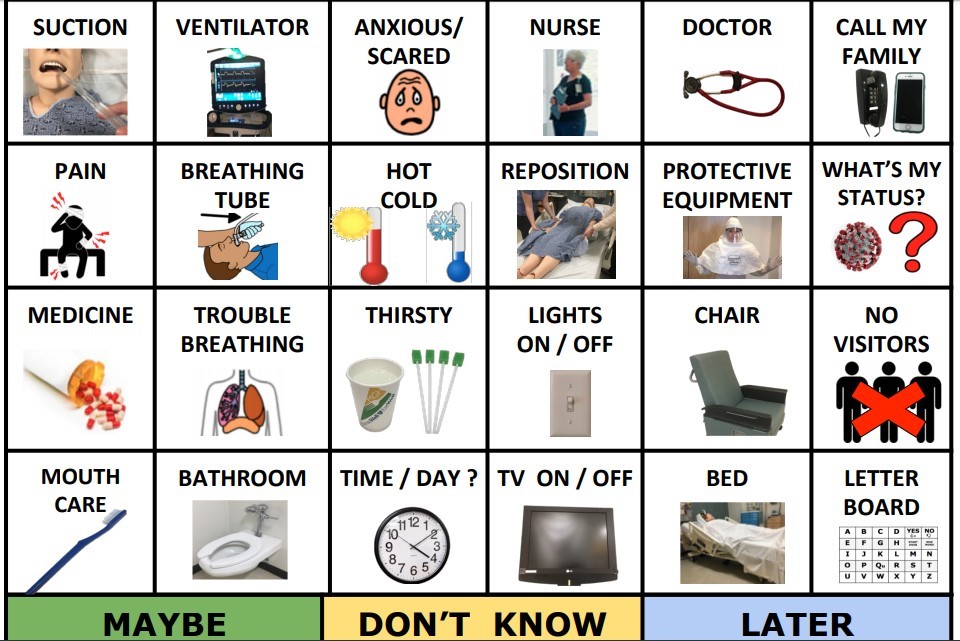School of Communication Sciences and Disorders
Helping People in Isolation Communicate in a Time of Crisis
by Sara Grace Davis and Sarah Brake
The coronavirus pandemic is sweeping across our nation and has affected our city of Memphis, with over 2,000 cases in Shelby County. What might be forgotten is that many hospitalized COVID patients are suddenly facing challenges with verbal communication. Breathing difficulty means poor respiratory support for speech, and patients on ventilators may not be able to communicate verbally at all. Add that to the fact that hospitals are restricting visitors who could help patients communicate, and you have a recipe for miscommunication disaster.

(Image from patientprovidercommunication.org)
To help facilitate the communication between COVID patients and their providers, the
School of CSD and NSSLHA chapter is stepping up to provide communication boards to
local hospitals. Communication boards are a "low tech" or "rapid access" type of AAC
(Augmentative and Alternative Communication) that consist of a printed grid of symbols,
pictures, and words.
Patients can point, gesture, and gaze at the display to indicate what they want to
say. The School of CSD is not the first to consider the communication needs of COVID
patients. A task force was created by the group, Patient Provider Communication (PPC),
specifically to address these needs. Many hospitals are beginning to implement the
recommendations and resources provided by the group.
The project at the School of CSD has been a team effort. Dean Linda Jarmulowicz initiated the school's involvement, and clinical supervisor Vicki Haddix pointed out the free printables provided by the PPC group for communication boards with coronavirus-specific vocabulary. Students emailed local SLPs asking if they would like to receive boards, and director of SLP services Marilyn Wark printed the boards. Graduate Assistants and NSSLHA board members are taking isolated turns laminating the boards.
The first shipment went out on Friday, April 24th to Baptist and Methodist locations in both Tennessee and Mississippi. The school is encouraging anyone in the area who would like to receive these boards free of charge to contact the school. As of late May, more than 200 have been distributed throughout the Mid-South area.
AAC specialist Vicki Haddix commented on the importance of this project, "We have research that shows that patients who are able to communicate using AAC... report that they feel better physically and feel like they have more control over a highly stressful situation. In the current new situation where people are being hospitalized and unable to have loved ones with them, maintaining what communication we can is even more important."
This story has been picked up repeatedly by local newspapers and television stations. You can read additional coverage using these links:
